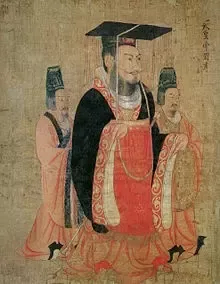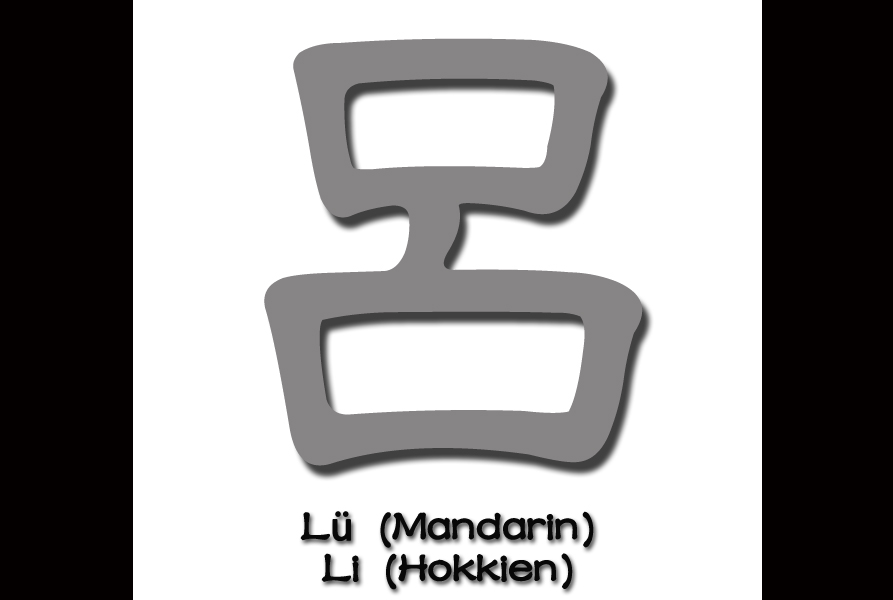First published in Tulay, Fortnightly Chinese-Filipino Digest 24, no. 11 (November 1-14, 2011): 5-6.
The Chinese surname 呂, pronounced as Li in Hokkien or Lü in Mandarin, ranks 22nd among Chinese surnames in the Philippines and 43rd in China.
呂 is a very ancient surname in China. It is said that the Lü ancestor was heir to China’s legendary Emperor Yan Di (炎帝), by the name of Bo Yi (伯益), with surname Jiang (姜).
Due to his great merit and contribution in assisting Emperor Sun (舜) and Emperor Yu (禹), he was made a duke with territory at a place called 呂(in Henan province today) where he established the State 呂.
Unfortunately the State 呂 was destroyed in 688 B.C. after which all the heirs of the state came to use the name of their former state as their surname.
The surname 呂 might not be a major one in China and the Philippines. But it is interesting to note that there were two prominent figures in China’s history who bear the surname.
One is said to be the biological father of China’s first great Emperor Qin Shihuang (秦始皇) who unified China in 221 BC by the name of Lü Buwei (呂不韋). The mother of Qin Shihuang was pregnant by Lü Buwei before she became the wife of Qin Shihuang’s father, King Qin Zhuang Xiang Wang (秦莊襄王).

Lü Buwei was actually the prime minister of both King Qin Zhuang Xiang Wang and Emperor Qin Shihuang, a very powerful man in State Qin and China when Qin Shihuang united and ruled the whole China. The famous Great Wall of China was built during Qin Shihuang’s reign.
Another prominent 呂 in China’s history is a female, an empress by the name of Lü Zhi (呂雉). She was the wife of Han (206 BC-220 AD) Dynasty’s first emperor Han Gaozu (漢高祖) Liu Bang (劉邦). She was able to control and rule Han’s regime for 16 years after her husband passed away and became the first empress in China 2,000 years ago. She was an extraordinary woman in China.
And finally, although this is not used as surname, the island of Luzon in the Philippines is written in China as 呂宋 (Li Song in Hokkien, Lü Song in Mandarin). The name 呂宋 was given to the Philippines by the Chinese since Song (宋) Dynasty (960-1279). The Chinese called the Philippines呂宋 until very recently. And until the turn of the 20th century, they also called Manila 小呂宋 (small Luzon).
With the character 呂used for Luzon, the surname itself became familiar among the Chinese in the Philippines.
